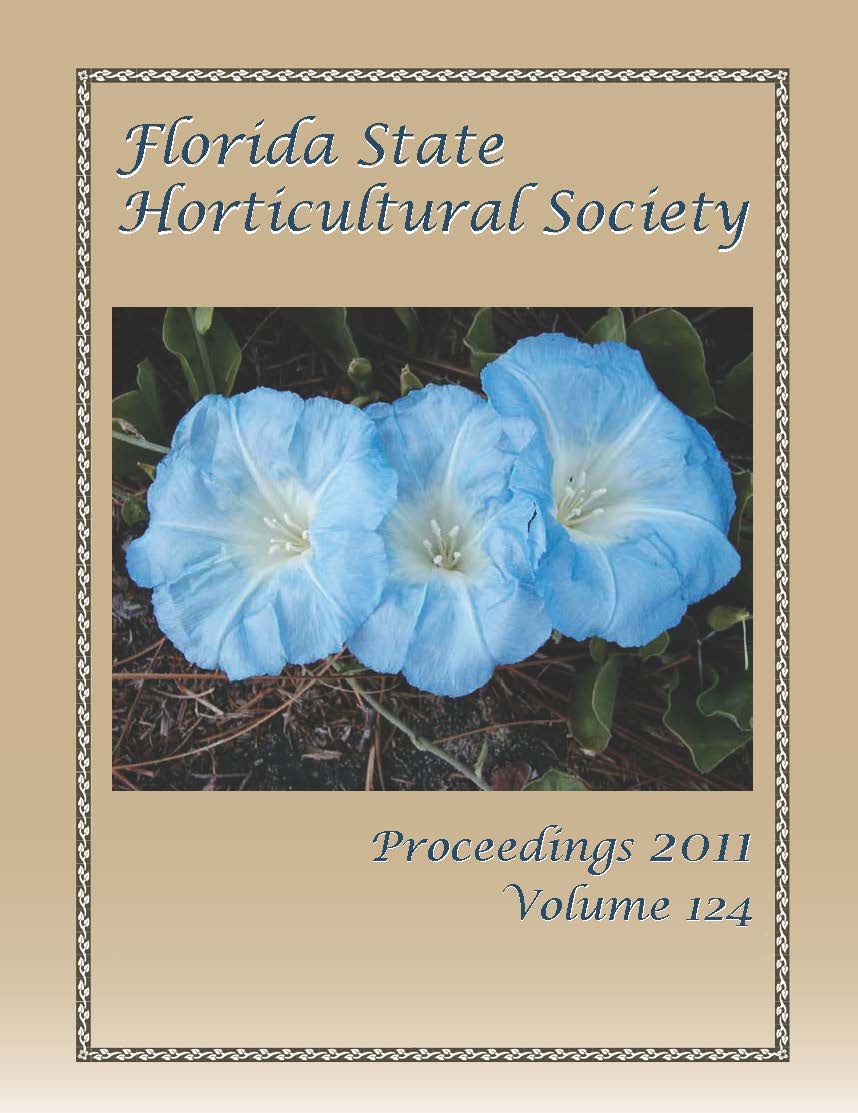Published 2011-12-01
Keywords
- soil solarization,
- inorganic mulches,
- weeds,
- purple nutsedge,
- Poly Pak
- Polydak® ...More
Abstract
Soil solarization is a method in which clear plastic films are used to increase soil temperature to manage soilborne plant pests such as insects, diseases, nematodes, and weeds during the summer time. Several different kinds of plastic films were evaluated in 2007 and 2008 for weed suppression. Treatments were arranged in a randomized complete block design with five replications. In 2007, treatments included five plastic films (ISO, VeriPack, Poly Pak, Bromostop®, white plastic), and a control (no plastic). In 2008, treatments were Polydak®, Poly Pak, Bromostop®, white plastic, and control. Films were evaluated for weed suppression based on weed ratings, using a scale that estimated amount of ground covered by weeds. Purple nutsedge (Cyperus rotundus) was a major weed problem throughout both years. Transparent plastic films such as ISO, Polydak®, and Poly Pak consistently outperformed white plastic and control treatments, but the clear plastics differed in suppression of nutsedges. Best results were achieved with UV-stabilized plastic films, which were highly effective for weed control.

